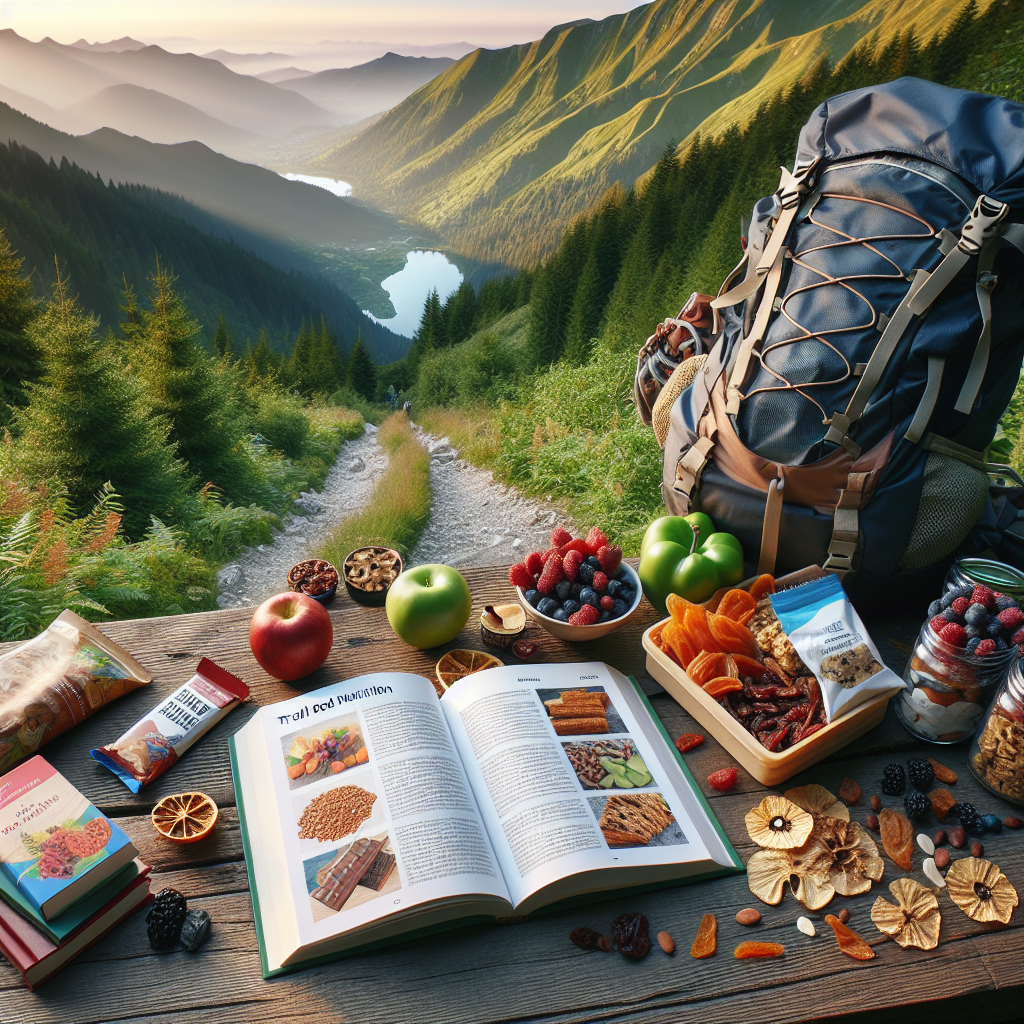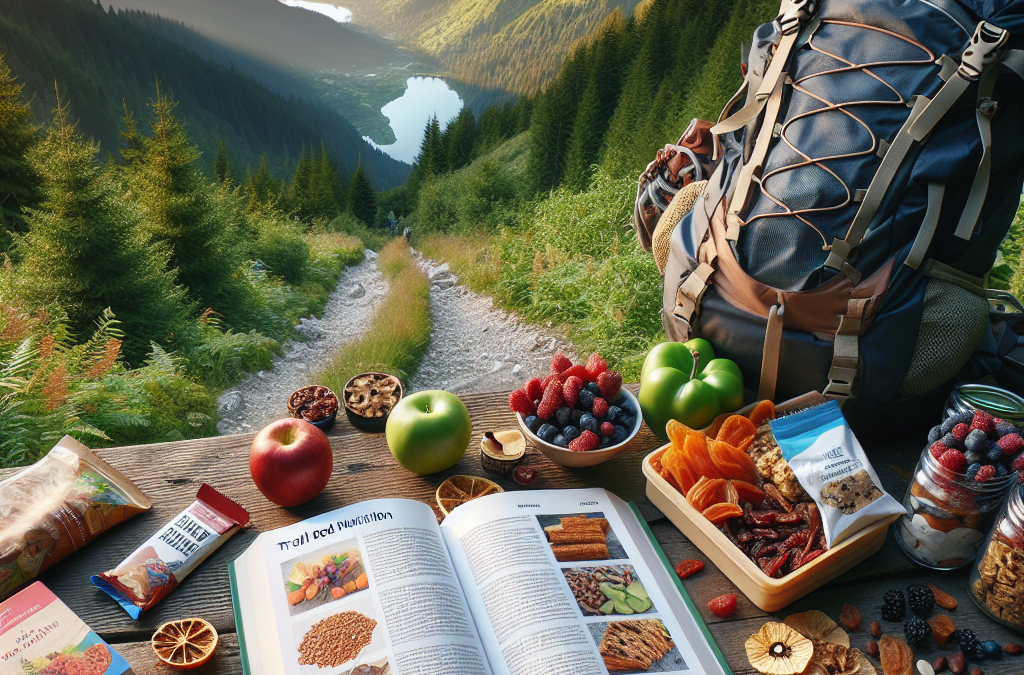Packing your backpack for a day on the trails is about more than just breaking in a pair of hiking boots. In “Hiking Nutrition: Fueling for the Trail” you’ll find comprehensive guidelines for ensuring your body is adequately powered for demanding hikes. Be prepared to learn about essential food types, optimum eating schedules, and beneficial hydration strategies. This article demystifies the complex world of hiking nutrition, offering indispensable knowledge that will keep you on your feet and enjoying the great outdoors longer. In your quest for peak performance, leverage this practical guide to fuel your body effectively for your next outdoor adventure.

Understanding the Importance of Nutrition on the Trail
Adventure awaits you in the great outdoors, but before you hit the trails, there’s something crucial you need to understand – the importance of nutrition while hiking. Proper nutrition is key to maintaining energy, enhancing performance, and ensuring faster recovery.
Importance of maintaining energy levels
Packing peanuts and chips certainly won’t cut it. You need to fuel your body with the right nutrients to keep your energy levels up. Imagine tackling a steep, uphill track, and halfway through, your energy fizzes out. It’s not just disappointing; it can put you in a potentially dangerous situation. By focusing on a balanced diet, you ensure a slow, steady release of energy throughout your hiking journey.
Impact of nutrition on performance
Apart from energy, your performance also greatly depends on what you put in your body. The right balance of macronutrients (carbohydrates, proteins, and fats) can make the difference between completing your hike with ease or struggling to get through it.
Recovery and nutrition
On your return journey, many hikers often neglect the significance of post-trail nutrition. It’s crucial for replenishing lost nutrients and aiding muscle recovery. Proper hydration and a nutritionally dense meal can speed up the recovery process and help prevent muscle soreness.
The Basics of Hiking Nutrition
Now that you’re aware of the importance of nutrition, let’s delve into the basics to craft a perfect, energy-packed diet for your hiking trip.
Macronutrients: Carbohydrates, Proteins, and Fats
Carbohydrates are your primary energy source during a hike. They’re swiftly converted into glucose, fueling you with instant energy. Proteins are essential for repairing and building muscles, while fats provide a dense source of energy, ideal for long and strenuous hikes.
Micronutrients: Vitamins and Minerals
Don’t forget your tiny warriors. Vitamins and minerals are crucial for boosting immunity, accelerating wound healing, and protecting against oxidative stress during prolonged outdoor exposure.
Hydration: Water and Electrolytes
Water is unquestionably the most critical nutrient, especially when hiking. Dehydration can quickly lead to fatigue, dizziness, and worse. Replenishing lost electrolytes helps maintain water balance and muscle function.
Pre-Trail Meals
A good hike, much like any great adventure, begins with a bang. For hikers, this translates into a well-balanced pre-trail meal.
Importance of a well-balanced pre-trail meal
A well-balanced meal gives your body the necessary fuel to convert into energy. It boosts your performance, prolongs endurance, and also aids digestion and absorption of nutrients during the hike.
Suggested pre-trail meals
A pre-trail meal may include whole grains for slow-release energy, lean proteins for muscle building, fruits, and veggies for vitamins, minerals, and hydration. Foods like oats with berries and seeds, whole wheat sandwiches with lean meat, etc., work wonders.
Timing your meals before a hike
Aim to eat your pre-trail meal 2-3 hours before you hit the trail. This allows your body enough time to digest and absorb the nutrients properly.
On-Trail Nutrition Strategies
Managing your nutrition while on the trail is equally important, with snacking, hydration, and quick energy sources playing a key role.
Eating Frequency: Snacking vs. Meals
Instead of heavy meals, opt for frequent snacking. This provides a steady energy supply and prevents energy slumps.
Keeping Hydrated: Water Intake Strategies
Regularly sip on water, even if you’re not thirsty. An electrolyte drink can be helpful, particularly during warm weather or strenuous hikes.
Quick Energy Sources: Gels, Bars, and Fruit
Quick energy sources like energy gels, bars, or fruit provide an immediate replenishment of glucose levels and help prevent the dreaded energy crash.

Post-Trail Nutrition
Your nutritional responsibility doesn’t end with the hike. Post-hike nutrition is crucial to help your body recover and replenish.
The importance of post-hike nutrition
Post-hike nutrition accelerates recovery by replenishing lost nutrients, rehydrating the body, and aiding muscle repair.
Recovery Meals: What to Eat after a Hike
Focus on protein to repair muscle damage, carbohydrates to restore lost glycogen, and lots of fluids for rehydration.
Staying Hydrated: Post-hike Hydration Strategies
Continue to hydrate post-hike, even if you’re not feeling thirsty. This helps replenish lost water and electrolytes, preventing post-exercise fatigue.
Meal Planning for Multi-day Hikes
For multi-day hikes, meal planning is key. You need to ensure a steady supply of nutrients to keep you going, keep your food safe, and prep meals conveniently.
Planning meals according to hike duration and difficulty
Longer, more difficult hikes call for nutrition-packed food that is high on energy but light on the stomach.
Meal Prep: Easy and Nutritious Recipes
Try to include quick and easy-to-make recipes like trail mix, oatmeal, dried fruit, or a canned tuna salad.
Food Safety: Keeping Food Fresh on the Trail
Pack perishables in a temperature-appropriate container and include non-perishable options.
Nutritional Supplements for Hikers
Nutritional supplements can be beneficial for hikers, as they provide a concentrated source of essential nutrients.
Supplement choices: What can give you a boost
Energy gels, protein bars, and electrolyte tablets can provide a quick and convenient nutrient boost.
Safety Measures: When and How to use supplements
Remember, supplements should not replace a balanced diet, only supplement it. They should be used judiciously, in recommended dosages, and monitored for any adverse effects.
Dealing with Dietary Restrictions on Trails
If you’re on a special diet, don’t worry. With a little planning, you can still have a nutritious hike.
Gluten-free options
Nuts, seeds, fresh fruit, and vegetables are naturally gluten-free. Quinoa, rice, and corn flour snacks are also good options.
Dairy-free options
For dairy-free options, choose alternatives like almond, oat, or soy milk. Most trail mixes, dried fruits, pulses, and seeds are also dairy-free.
Vegetarian and Vegan choices
Beans, legumes, seeds, and nuts are excellent sources of plant protein. Include whole grains, fresh/dried fruits, and veggies for a balanced diet.
Special Nutritional Needs for High-Altitude Hiking
High-altitude hiking poses unique challenges. Reduced oxygen levels can increase your metabolic rate and caloric requirements.
Effects of altitude on metabolism
Higher altitudes can make your body work harder, meaning you’ll need more energy and hydration.
Choosing the right food for high-altitude hiking
Choose foods high in complex carbs and easily digestible proteins. Enough fluids and salts are also vital to prevent high-altitude sickness.
Common Mistakes in Hiking Nutrition and Solutions
Finally, avoid a few common nutritional missteps that could dampen your hiking experience.
Underestimating caloric needs
Remember, constricting your calorie intake during hikes can drastically affect your performance and recovery. Opt for a nutrient-dense diet.
Ignoring hydration needs
Never neglect hydration, as dehydration can lead to life-threatening situations. Regularly sip on water and replenish electrolytes.
Nutrient imbalances
Maintain balance. Too much of one thing can create a deficiency of another. Now, pack those bags, friends, but with the right grub. Remember, in hiking and life, it’s about the journey, not just the destination. Fuel right, hike right, live right. Happy hiking!

